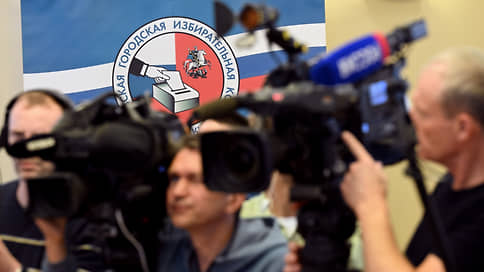Debates between candidates for mayor have ended in Moscow
[ad_1]

The televised debate between the contenders for the post of mayor of the capital has ended in Moscow. On September 7, the candidate from “A Just Russia – For Truth” (SRZP) Dmitry Gusev and the representative of the LDPR Boris Chernyshov met on air for the last time, who turned out to be the most persistent participants in “joint campaign events.” Experts are not ready to name the winner of their duel: once they participated, they are already doing well, they explain. Their readiness for face-to-face verbal duels may not affect the current campaign, but will give a delayed result, for example, in the same elections to the Moscow City Duma, which are to take place next year.
In total, during the campaign period, 16 rounds of debates were held on the Moscow 24 and Moscow Trust television channels. The only one who did not miss a single event, although he often remained there completely alone, was Boris Chernyshov. The mayor of the capital, Sergei Sobyanin, did not take part in the debate at all (he actively communicates with voters on social networks and during regular events), as well as the candidate from the Communist Party of the Russian Federation, Leonid Zyuganov, who explained his absence from television channels by his busy schedule of meetings with voters. Vladislav Davankov, nominated by New People, came to the first debate, but then lost interest in it and even ignored the final meeting (although he promised journalists the day before that he would be there).
The topic of the debate was stated as “City of Equal Opportunities”. Candidates preferred to start with existing inequality, from which it was easier for them to move on to their own election promises.
Boris Chernyshov said that he is ready to eliminate imbalances in the development of city districts, reduce the period of residence in Moscow, which is necessary to receive a capital increase in pension, and make the capital’s sidewalks convenient for wheelchair users. Dmitry Gusev emphasized the need to make school lunches and public transport free for students, and promised free trips to health resorts to pensioners. Quite quickly, the debaters moved on to the question of who, in principle, is the more “left-wing” politician. SRZP intends to bring back all the best that was in the Soviet Union, Mr. Gusev promised.
The party program is supported by “real communists” (that is, the “Communists of Russia” party.— “b”) and patriots. “The Soviet Union is on my birth certificate!” – Mr. Chernyshov retorted. As for communists, he recalled, USSR President Mikhail Gorbachev and first Russian President Boris Yeltsin were also communists, and the liberal democrat has complaints about them. Those who hold leftist views should support him, Mr. Chernyshov explained, especially since the candidate from the Communist Party of the Russian Federation does not attend debates at all.
This is not the first time that candidates from the SRZP and LDPR at the debates found out which of them has more grounds to claim the electorate of the Communist Party of the Russian Federation.
Political scientist Konstantin Kalachev explains the “left bias” of the discussion by the characteristics of the audience of Moscow television channels – mainly people of retirement and pre-retirement age who feel nostalgia for the USSR and demonstrate a request for social justice, he argues. Perhaps this is precisely what can explain Vladislav Davankov’s refusal to further participate in the debate: he simply realized that his ideas were for a completely different audience. According to the political scientist, there are no losers in the verbal duels, except perhaps Leonid Zyuganov, from whom we never heard a clear explanation for his refusal to participate in them.
President of the communications holding Minchenko Consulting Evgeniy Minchenko believes that in the conditions of so-called “referendum-type campaigns” (that is, in the absence of strong competitors to the current governor), what is important for candidates is not winning the debates, but participating in them. At the same time, Sergei Sobyanin could quite easily not attend the debates, given the huge gap from his competitors.
But Leonid Zyuganov lost a lot as a result, including as a potential successor to his grandfather and leader of the Communist Party of the Russian Federation Gennady Zyuganov, Mr. Minchenko states: “This combination of the appearance of a barbershop regular and very old-fashioned rhetoric creates a comic effect, as well as an attempt to become a blogger instead of attending debates “
As for Mr. Davankov, at the debate he at least “introduced himself” and looked lively, the expert notes. He adds that all participants in the debate demonstrated mutual respect and goodwill – “I think this is where all three candidates scored points among the political elite,” concludes Evgeniy Minchenko.
Political scientist Alexander Asafov agrees with him: the one who has now proven himself to voters may not win anything “in the moment,” but will certainly receive deferred preferences – at least in the prism of the Moscow City Duma elections, which are to be held in 2024. Attendance at debates in any case increases recognition, the expert explains. “We are in a big electoral cycle, and it is important for its participants not to lose the voter, so that in a year they will not have to explain who they are again,” the expert reminds.
[ad_2]
Source link








